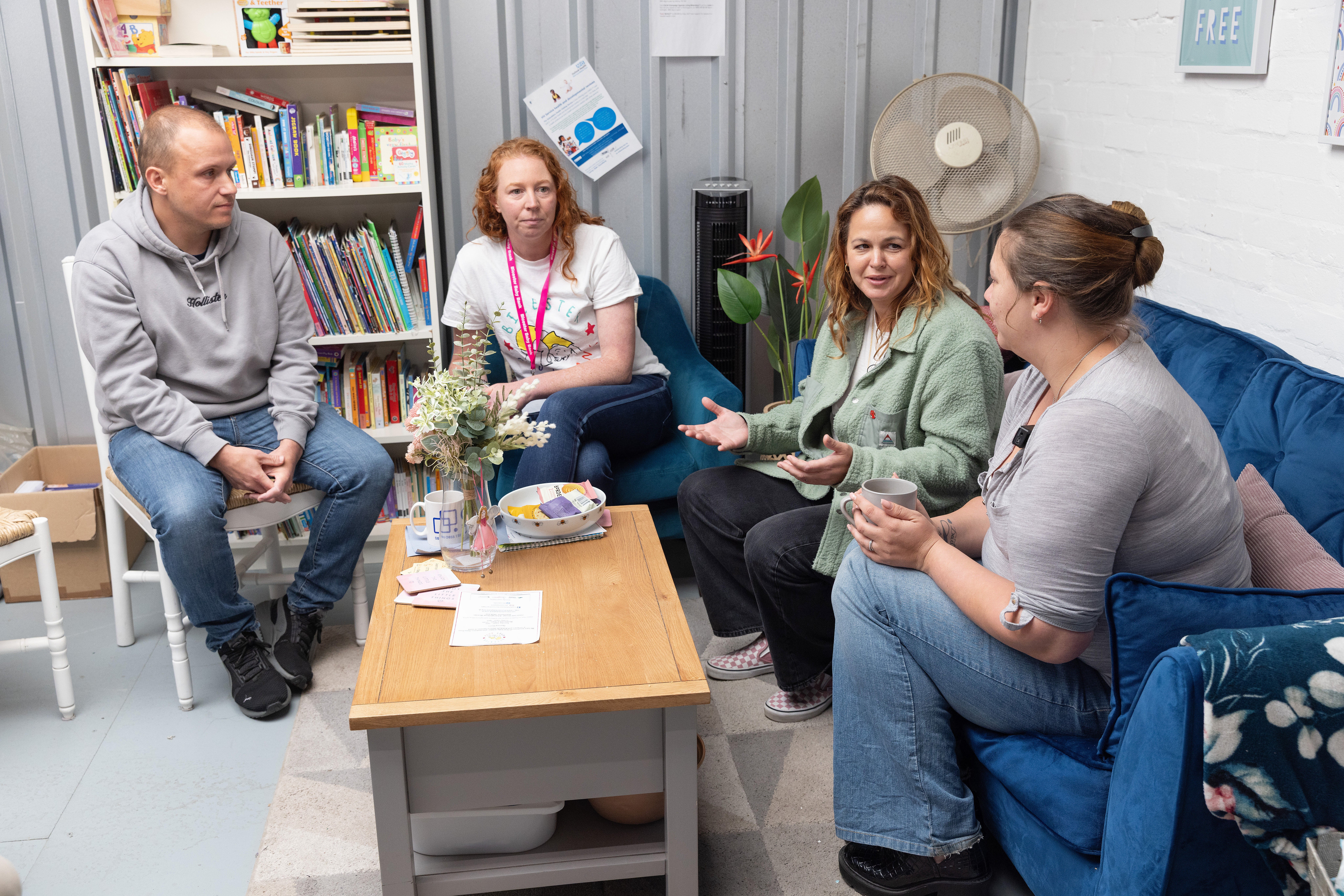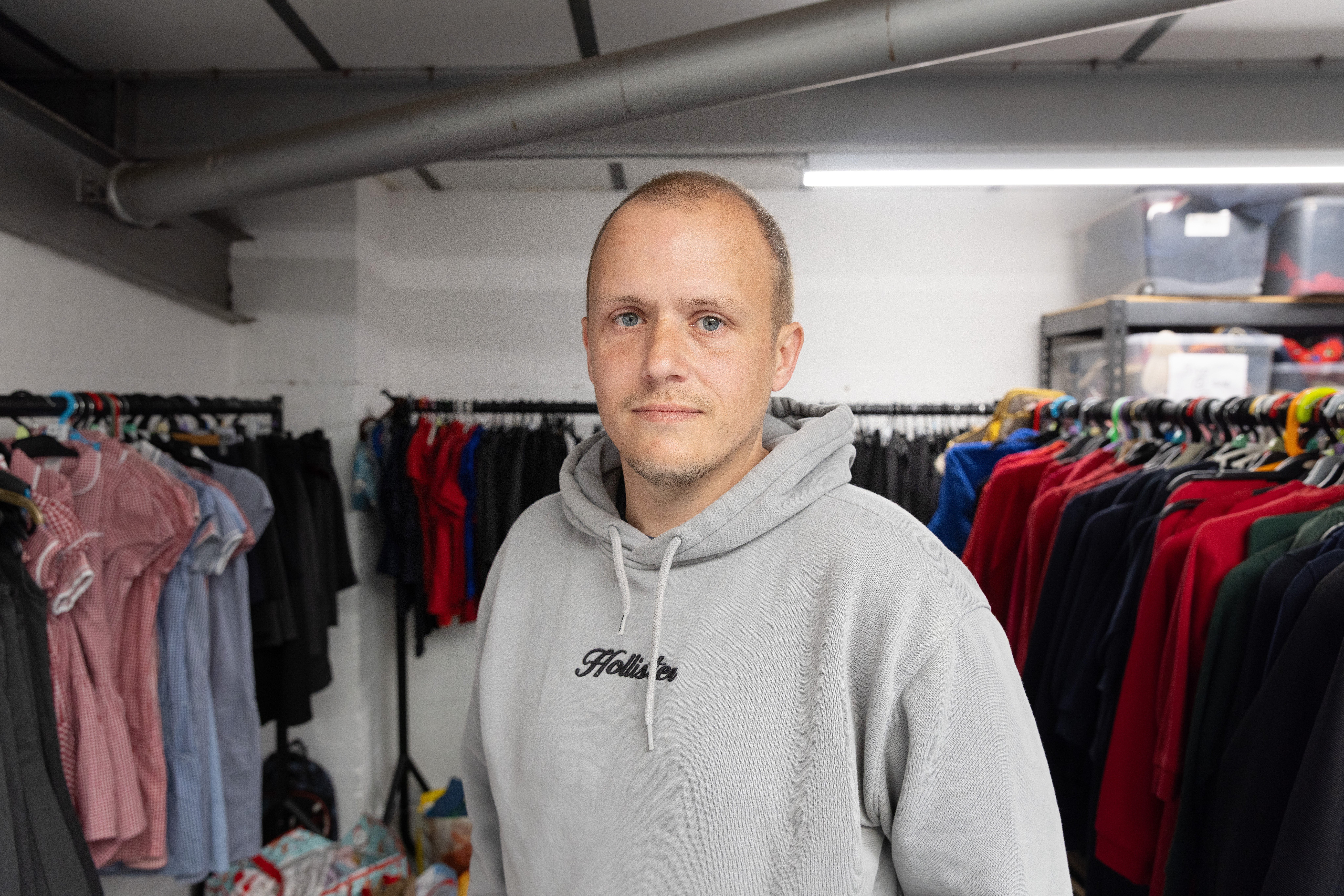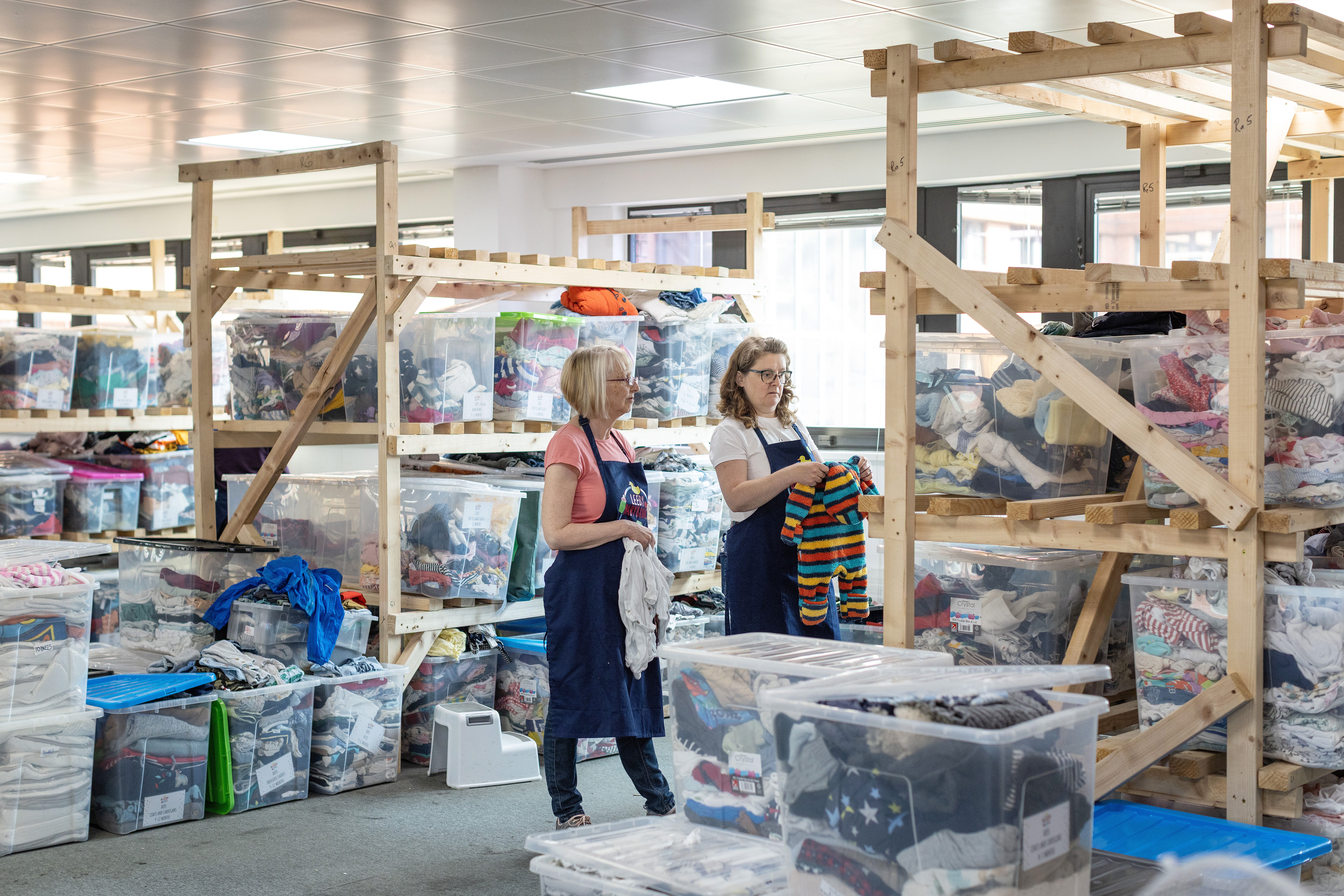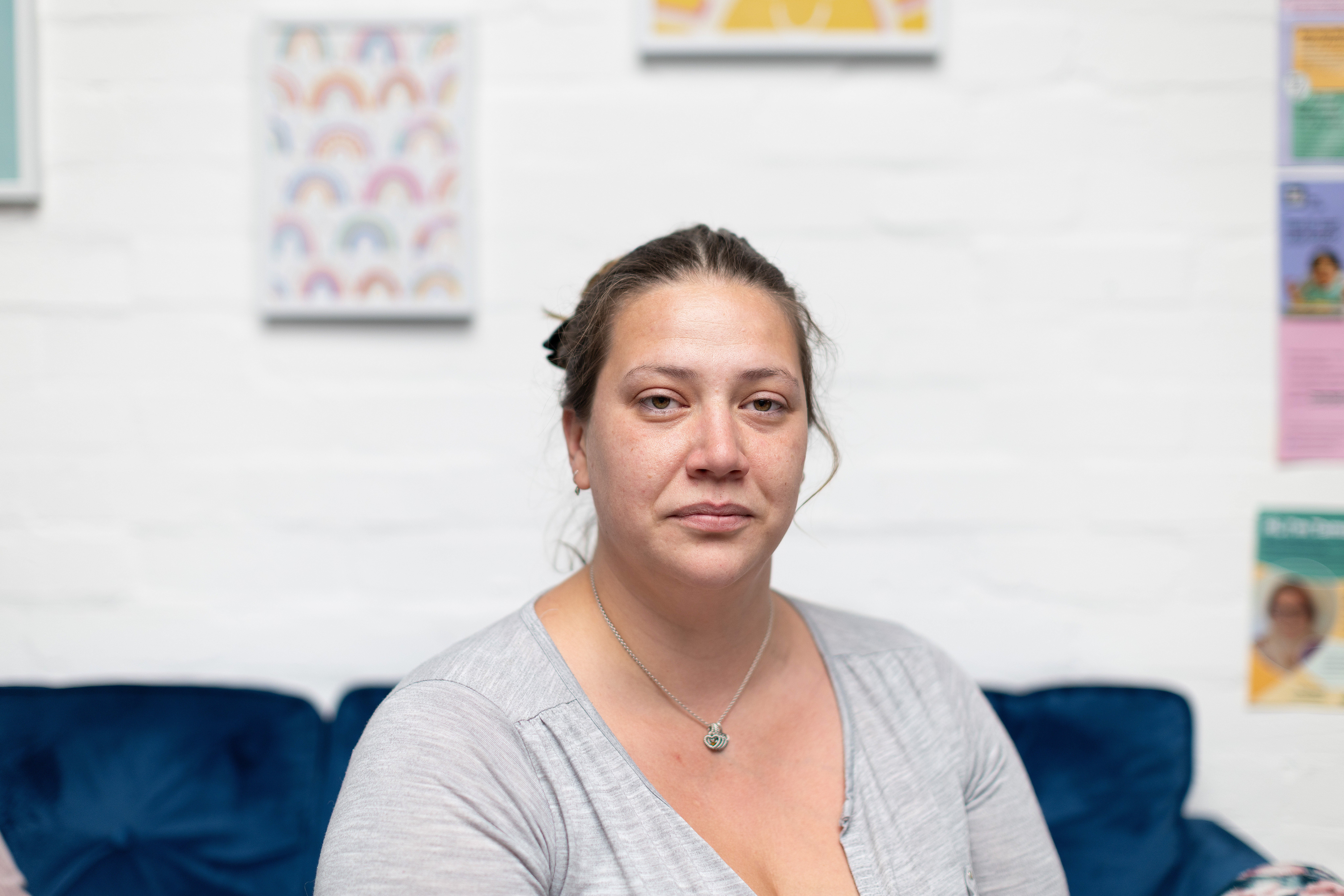ARTICLE AD BOX
Demand for baby banks from parents struggling to feed their children has surged by more than a third in a year, The Independent can reveal amid record-high child poverty levels.
As the cost of living continues to rise, a growing number of families are having to turn to baby banks with new data showing over 3.5 million essential items were handed out in 2024, including nappies, clothes and cots – an increase of 143 per cent on the previous year.
Describing the rising need as “absolutely shocking”, actor and podcast host Giovanna Fletcher questioned how this is happening in the UK as she joins forces with MPs and children’s charities to urge the government to take action.
The new figures come after Labour delayed its flagship plan to cut child poverty until the autumn, although it insists the strategy will be “ambitious”. Meanwhile, ministers debate whether or not to scrap the two-child benefit cap as the cost of living crisis continues to bite, and statutory Maternity Pay (SMP) remains equivalent to less than half the 2025 national living wage.

Single father Adam Coggins, 34, said the pressures of parenthood took a toll on his mental health and forced him to reach out to a baby bank for the first time, fearing that without help his daughters, aged two and three, would not eat.
The 34-year-old told The Independent: “I was so uncomfortable going there because I’ve never had to ask for help before, I felt like a failure, that was hard… [But] without these people, we would be in trouble – they’ve saved a lot of people, especially when you’ve got two young kids, you need that help. That could be the difference between getting a couple of meals for them – getting two packs of nappies saves you money to get food for them.”
Mr Coggins is among the 219,637 families supported by UK baby banks in 2024 alone – an increase of 35 per cent on the previous year, according to the data from Save the Children (STC) UK and the Baby Bank Alliance (BBA), which supports and advocates for the more than 400 baby banks nationwide. Stark government figures show that the number of children in poverty in Britain soared by 200,000 from 4.3 million to 4.5 million between 2023 and 2024.
The BBA’s analysis of its latest annual survey of members found that baby banks are stretched to the limit. Almost two-thirds (65 per cent) reported receiving more requests for help than they could meet, with referrals rising by 30 per cent last year, while over two-thirds (69 per cent) said they have waiting lists for key items. This marks a crisis when baby banks are a lifeline for families, providing essential items like clothing, nappies, toys, prams and food, as well as a safe space – often run by volunteers from community halls, warehouses and even front rooms.
Bestselling author and podcast host Ms Fletcher recently visited baby banks in Leeds, Bedford and Bicester. Criticising the government’s current approach and urging it to implement long-term solutions, she told The Independent: “They have to take stock and look at the data... so many families are now having to make impossible choices about how to feed their family, how to clothe their family – and they’re always coming up short, and that’s such a massive pressure.”

Kirsty-Louise Fulford, 31, met Ms Fletcher at Bicester Baby Bank. The 31-year-old and her partner sometimes rely on the baby bank for formula for their 16-month-old daughter and food for their son, aged three, as well as for nappies and baby wipes. “Without the baby bank, I don’t think I’d be able to cope,” she said.
Jennie Bayliss, the baby bank lead at Faces Bedford, which runs Bicester Baby Bank, said they are completely reliant on donations but “only getting busier”, with at least 30 requests coming in every week.
Labour MP for Norwich South Clive Lewis said: “That baby banks even exist in one of the richest countries on earth is an indictment of our political choices. The fact they’ve now seen a 35 per cent surge in demand speaks to a crisis not of resources, but of priorities. If we can afford tax breaks for the wealthy, we can afford dignity for children. Ending child poverty is a political decision. This government is choosing not to make it.”
Labour MP for Liverpool Riverside Kim Johnson described the reality that baby banks have become a lifeline for so many as a “national disgrace”, with families now “pushed to the brink”. She said: “Nappies, formula, and clothing are not luxuries – they are essentials for a child’s wellbeing. No child should be growing up in poverty in one of the wealthiest countries in the world. Yet baby banks are being left to do the job of government.”
Also calling on the government to end child poverty, Labour MP for York Central Rachael Maskell said: “The greatest impact of poverty can be found in the first years of life. No parent should have to depend on food, baby and multi-banks, but should have enough support to care for their baby.”

A woman, who wished to remain anonymous, said that the homeless charity she works for is currently referring three or four survivors of domestic violence to baby banks per week. Without that support, she said the women and children “would have nothing”, even questioning how they would survive.
Executive Lead at the BBA Dani Adams said: “Families shouldn't have to worry about having a safe space for their children to sleep, or whether they have enough clothes to keep them warm, but the sad reality is that they are.”

Director of UK Impact at STC Dan Paskins added: “Scrapping the two-child limit to benefits and the benefit cap would be a start in alleviating the pressure not only on families but also the baby bank community. The UK government’s long-awaited child poverty strategy is a pivotal moment to begin making positive changes for children.”
A government spokesperson said: “The government is determined to bring down child poverty.
“We've already expanded free breakfast clubs, increased the national minimum wage for those on the lowest incomes, uprated benefits and supported 700,000 of the poorest families by introducing a Fair Repayment Rate on Universal Credit deductions.
“We will publish an ambitious child poverty strategy later this year to ensure we deliver fully funded measures that tackle the structural and root causes of child poverty across the country.”









 English (US) ·
English (US) ·